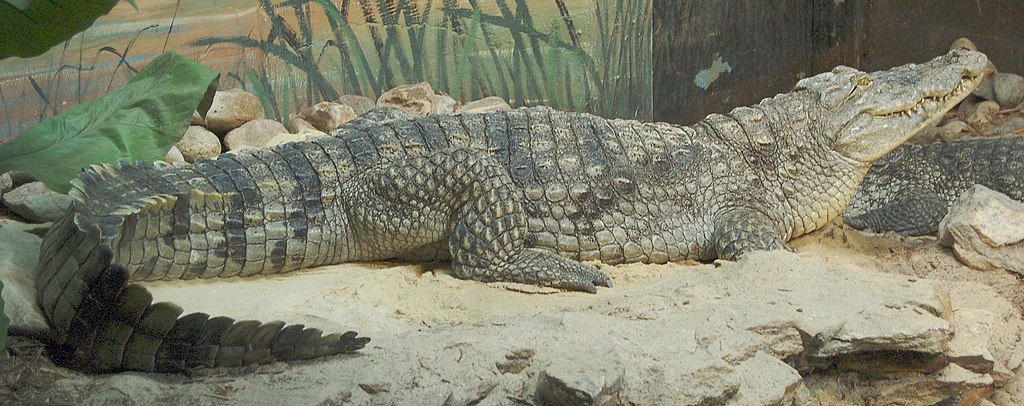What was the serpent?
The Torah writes (Exodus 7:10-11):So Moses and Aaron came before Pharaoh and did just as the LORD had commanded: Aaron cast down his rod in the presence of Pharaoh and his courtiers, and it turned into a serpent. Then Pharaoh, for his part, summoned the wise men and the sorcerers; and the Egyptian magicians, in turn, did the same with their spells; each cast down his rod, and they turned into serpents. But Aaron’s rod swallowed their rods.
לתנין means A SERPENTEarlier Rashi explains differently (Genesis 1:21, see also Job 7:12):
התנינים THE HUGE CREATURES — the large fishes that are in the seaThe Malbim has another explanation (Isaiah 27:1):
Some explain this as referring to the crocodile and that this was the wolf fishHowever, the Abarbanel cites Rabbeinu Chananel (Exodus 7:26) that the crocodiles were something else:
And that which is written here "צפרדעים" most commentators say that these are small fishes which always croak in the marshes, but Rabbeinu Chananel explains that these are the big creatures which live in the Nile which are called in Arabic "Al Tamsach" [which is translated as crocodiles]Both of these would be referring to the Egyptian Crocodile (Crocodylus niloticus):
Metzudas Zion (Isiaah 27:1) explains differently:
This refers to a fish which is similar in its appearance to a snake(Please see Rabbi Natan Slifkin's Sacred Monsters where he suggests many other possibilities including an oar fish as seen below)
Why did the Egyptians dig around the Nile?
The Torah writes (Exodus 7:24):And all the Egyptians had to dig round about the Nile for drinking water, because they could not drink the water of the Nile.Bechor Shor (ibid) explains:
They had to make wells for themselves which did not have fish and would go bad from the rot of the fishHaemek Davar (ibid) explains:
And the Egyptians searched around the river for water to drink from the river, but other water they had through getting it from a Hebrew and they wouldn't need to digIbn Ezra disagrees (ibid):
Many say that the water held by an Egyptian was red like blood and turned clear when an Israelite held it, if so why didn't the Torah write this sign? To me it seems that the plagues of Blood and Frogs affected everyone including Egyptians and Hebrews for afterwards they were separated, but for these three they were slightly damaged. Only from the plague of wild beasts which was very strong did G-d separate between the Egyptians and the Israelites etc.
The Midrash writes, that according to Rabbi Yehuda it says that only the waters above ground were stricken and not below and Rabbi Nechemiah is of the opinion that even below were stricken
[therefore according to the first opinion that's why the Egyptians were digging to get to the water below ground]

